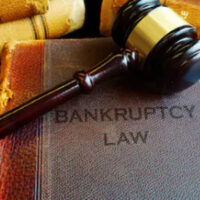Modifying Payments in a Chapter 13 Bankruptcy

In a Chapter 13 bankruptcy, you agree to pay your creditors some of the money that is owed to them over a period of 3-5 years. While paying money doesn’t always sound desirable, whatever you do pay during that time will be far less than what you would have owed had you not filed for any bankruptcy, and Chapter 13 does offer the benefit of allowing you to keep more of your property than a Chapter 7 does.
Your Chapter 13 Plan and Payment
Once approved for a Chapter 13 bankruptcy, you will have a plan—essentially, a schedule that tells you what you will pay every month and for how long. But that schedule may be between 3 to 5 years. As we’ve recently learned from the economic impact of the coronavirus, things happen to our jobs and our income over time that we don’t anticipate.
What happens if you are approved for a Chapter 13 plan, and something happens that makes you unable to keep paying the amount you committed to pay under your plan? Can the amount be modified?
Debts That Can’t be Changed
Your repayment plan includes all of your debts, even debts that cannot be reduced or discharged in bankruptcy. Things like child support, alimony, some income taxes, or criminal restitution must be paid back at 100%. That means that if your plan consists mostly of non-dischargeable debts like these, it may not be possible to lower your payment.
However, most people’s plans are not completely composed of non-dischargeable debts such as these. That leaves the court with some room to lower a Chapter 13 plan.
What to Show the Court
To modify your payment, you will have to file a motion with the court. In some cases, your creditors won’t object to the altered, lowered payment, in which case the lowered payment will usually be approved.
You must show the court that your reduction or loss of income is significant and is expected to be permanent. Often, debtors will show they have a health condition, which prevents them from earning what they once earned.
In some cases, the debtor can show that there has been an increase in expenses that is not voluntary – for example, if the debtor has incurred medical expenses, or had a child, or had some other increase in expenses that the debtor can’t control. Increases in your standard health care premium payments also can be justification for lowering a Chapter 13 repayment amount.
If your plan includes paying back money that is secured by property–say, you are repaying back owed mortgage or car payments–you can also opt to surrender the property being paid off, and thus you will no longer need to include those payments in your plan.
The West Palm Beach bankruptcy lawyers at Kelley Kaplan & Eller at 561-264-6850 can help you with your Chapter 13 bankruptcy case. Call today for a consultation.
Resource:
govinfo.gov/content/pkg/USCOURTS-ncwb-2_06-bk-20015/pdf/USCOURTS-ncwb-2_06-bk-20015-0.pdf
https://www.kelleylawoffice.com/what-are-contingent-assets-and-should-you-worry-about-losing-them/



